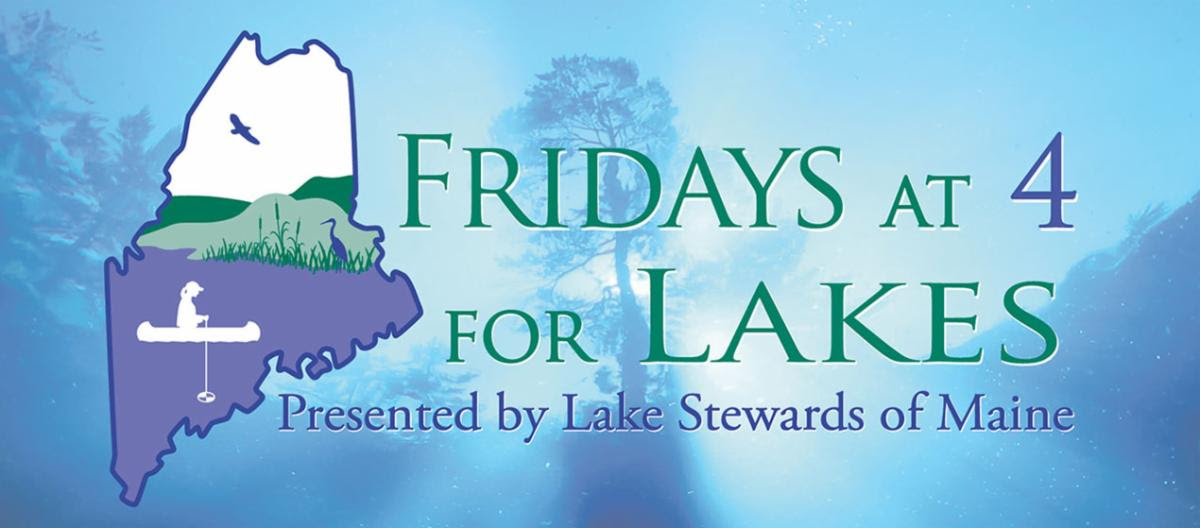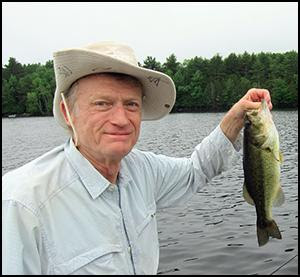 Lake Stewards of Maine has been putting out an annual newsletter for many years. It is full of interesting lake-related news and information and well worth perusing. The Clary Lake Association has been a supporting member of Lake Stewards of Maine (formerly the Volunteer Lake Monitor Program) since 1975 making Clary Lake the 3rd longest monitored lake in the state.
Lake Stewards of Maine has been putting out an annual newsletter for many years. It is full of interesting lake-related news and information and well worth perusing. The Clary Lake Association has been a supporting member of Lake Stewards of Maine (formerly the Volunteer Lake Monitor Program) since 1975 making Clary Lake the 3rd longest monitored lake in the state.








 Matt Scott is the founding father of Maine’s “Lakes Program”. He was the first biologist hired through Maine DEP in the early 1970’s, at which time he established a lake-focused research and protection unit that soon gained widespread recognition and respect. Matt was the driving force behind the formation of the first statewide citizen lake monitoring program, which continues to this day as Lake Stewards of Maine (formerly Volunteer Lake Monitoring Program). He currently lives in Belgrade.
Matt Scott is the founding father of Maine’s “Lakes Program”. He was the first biologist hired through Maine DEP in the early 1970’s, at which time he established a lake-focused research and protection unit that soon gained widespread recognition and respect. Matt was the driving force behind the formation of the first statewide citizen lake monitoring program, which continues to this day as Lake Stewards of Maine (formerly Volunteer Lake Monitoring Program). He currently lives in Belgrade. Lloyd Irland has served in Maine state and local government, as a consultant, and is an author writing on a range of topics concerning Maine’s natural resources. He has recently advanced the research regarding changes in the phenology of ice cover on Maine lakes. Lloyd is currently writing a book on Maine’s wildland rivers, and lives on a tributary to Androscoggin Lake in Wayne.
Lloyd Irland has served in Maine state and local government, as a consultant, and is an author writing on a range of topics concerning Maine’s natural resources. He has recently advanced the research regarding changes in the phenology of ice cover on Maine lakes. Lloyd is currently writing a book on Maine’s wildland rivers, and lives on a tributary to Androscoggin Lake in Wayne. Roberta is an aquatic ecologist and environmental educator. She has been active in the field of lake protection and community outreach in Maine for thirty years and has been instrumental in the creation and development of some of Maine’s most successful and long-standing lake education programs. Currently the Invasive Species Program Director for Lake Stewards of Maine, Roberta is the originator and coordinator of LSM’s internationally recognized Invasive Plant Patrol (IPP) program, through which close to 5,000 individuals (volunteers, professionals, agency personnel, students, teachers and others) have been trained to screen Maine waterbodies for the presence of invasive aquatic plants. Roberta is the principal author of the Maine Field Guide to Invasive Aquatic Plants and co-author of Citizens’ Guide to Invasive Aquatic Plant Management.
Roberta is an aquatic ecologist and environmental educator. She has been active in the field of lake protection and community outreach in Maine for thirty years and has been instrumental in the creation and development of some of Maine’s most successful and long-standing lake education programs. Currently the Invasive Species Program Director for Lake Stewards of Maine, Roberta is the originator and coordinator of LSM’s internationally recognized Invasive Plant Patrol (IPP) program, through which close to 5,000 individuals (volunteers, professionals, agency personnel, students, teachers and others) have been trained to screen Maine waterbodies for the presence of invasive aquatic plants. Roberta is the principal author of the Maine Field Guide to Invasive Aquatic Plants and co-author of Citizens’ Guide to Invasive Aquatic Plant Management.

